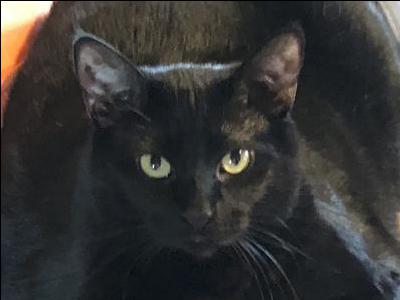7 More Questions to Ask Your Vet
We continue our discussion with...
7 More Questions to Ask Your Vet on the importance of communicating with your vet.
The original list of questions came out of emails that I had received from readers. It was obvious to me that based on the questions I was getting, that many cat owners do not get the answers they want from their vets.
The reason had to be that they were not asking good questions! And so, as a further aid to communication, I decided to publish my original 7 Questions to Ask Your Vet.
By the way, if you want to ask questions about cat health, you can now have the Cat Lovers Only community address them. Go ahead and ask your cat health questions here. If you can answer one, that would be great. Just enter a comment for a particular question.
Now, to continue, I've added 7 more questions, and that original list is now expanded with... 7 More Questions to Ask Your Vet.
Here they are...
-
What is the procedure if I need your help with my cat and you are on vacation?
You should know how this works ahead of time, just in case. -
What is your position on feeding raw meat diets or non-commercial cat food diets?
Without the proper mix of nutrients, your cat can go blind, or worse. Controversy surrounds raw meat diets, with some claiming they are dangerous.
In addition, it would be virtually impossible to duplicate the AAFCO nutrition requirements of commercial cat foods at home. -
What are my options when it comes to vaccinations?
You may know that your cat needs to be vaccinated, especially against rabies. What you may not know is that you have options.
The type, frequency, and injection site may vary depending upon your vet's preferences. Other variables are whether your cat is indoor or outdoor, and your cat's medical history. -
What is a normal weight for my cat?
Obesity is linked to a number of health conditions in cats, including feline diabetes. In an older cat, weight loss can be a sign of disease. Find out from your vet what your cat's ideal weight should be, and weigh your cat on a regular basis.
Teddie became quite heavy for a while. I blame myself for this. Our cats can tell us what they need, if we'll only listen. Although she sometimes went outside in the protected screened in area, she often spent much of her time resting in her favorite chair or basket.
At 2 or 3 AM, however, she'd try to wake me up to play ball with her. What I now realize is that she needed more exercise. That is exactly what I gave her (eventually, after she became over weight).
When I finally started exercising her more during my waking hours, she started to drop the weight, and stopped waking me up in the middle of the night. Duh! Not really rocket science but I just over looked it somehow. -
What do you recommend for cat litter?
Clay, pine, or other? There are many types and brands of cat litter. This is a whole sub-industry of cat care, with many players trying to drive sales with advertising.
Let your vet tell you what she recommends for your situation. Remember that some types of litter do better (or are required) with some types of boxes.
For example, the Feline Pine Self Cleaning box requires Feline Pine litter, while some other automatic litter box models require clay litter. The Litter Maid models use clumping litter, while the Litter Robot can use crystals or clumping litter. -
What do you recommend for cat litter boxes?
Covered, uncovered, small to large, how many, and where to put them... the list goes on. There are various types and models of cat litter box.
Be sure to get your vet's opinion on this important aspect of cat care. Ask your vet about the one plus one rule, which says that you should have one litter box for each cat, plus one more. -
What do we do when I need veterinary services that you are not equipped to handle?
If your cat health issues go beyond what your vet normally deals with, it may be time to call in a specialist. Behavioral issues, or specific diseases and conditions that require specialized care may require a referral.
Pet psychologists can help with certain cat behavior problems that some vets don't feel equipped to handle.
Some people do not feel comfortable taking their cat to a new vet, and I understand that. When my oldest cat, Priscilla, developed a heart murmur, I had to take her to an internal medicine specialist.
Priscilla was very shy when she was younger (she has gotten much better and is very brave now), so I was worried about her. Still, we had to know what was wrong.
So, we went to the new vet, and Priscilla was her usual stoic self (they even shaved her to do the echo-cardiogram -- how rude!).
She was very brave, though, and remained very complacent (although she clearly hated the experience) the whole time. I'm glad I got over my "new vet" syndrome and took her to the specialist.
You should discuss any possible referrals to specialists with your vet now so that you are prepared if the time comes.Use the above list of questions to ask your vet as part of a cooperative effort to give your cat the best care possible.


Comments: What do you think?
Have your say about what you just read. Leave me a comment in the box below.